Parenting Plans in Maine (Child Custody Agreements)
Parenting plans detail how parents will handle raising their child separately.
Parents are expected to let the court know what parenting arrangements they believe are best for their child. Although parenting plans are not required, they are the easiest way to let the court know your stance. Each parent can submit an individual proposal, or they can submit a joint proposal if they agree.
Parenting plan templates
Maine doesn't have a parenting plan template. Parents can put their proposed parenting arrangements in a document of their choosing.
The Custody X Change parenting plan template is one option. The software offers over 140 categorized provisions (parenting rules) and lets you create your own so you can cover all the bases of parenting.
 Try this with Custody X Change.
Try this with Custody X Change.
What to cover
At minimum, here's what you should cover in your plan.
Residence
Residence refers to where the child lives. There are two types of residence.
- Shared primary (also called substantially equal care): The child lives with each parent for close to equal time. Courts tend to prefer this arrangement if parents live near one another.
- Primary: The child lives with one parent the majority of the time. The other parent has regular visitation if it's safe for the child. Supervised visitation can ensure the child's safety.
A parent-child contact schedule lays out exactly when the child will be with each parent. You should write out your schedule in detail. For example, "Dad will have the child every other weekend, from Friday at 5 p.m. to Sunday at noon."
If you create a schedule in Custody X Change, a written description and a visual representation are automatically added to your plan. The written version meets court requirements for specificity, and the visual version helps everyone understand the schedule quickly.
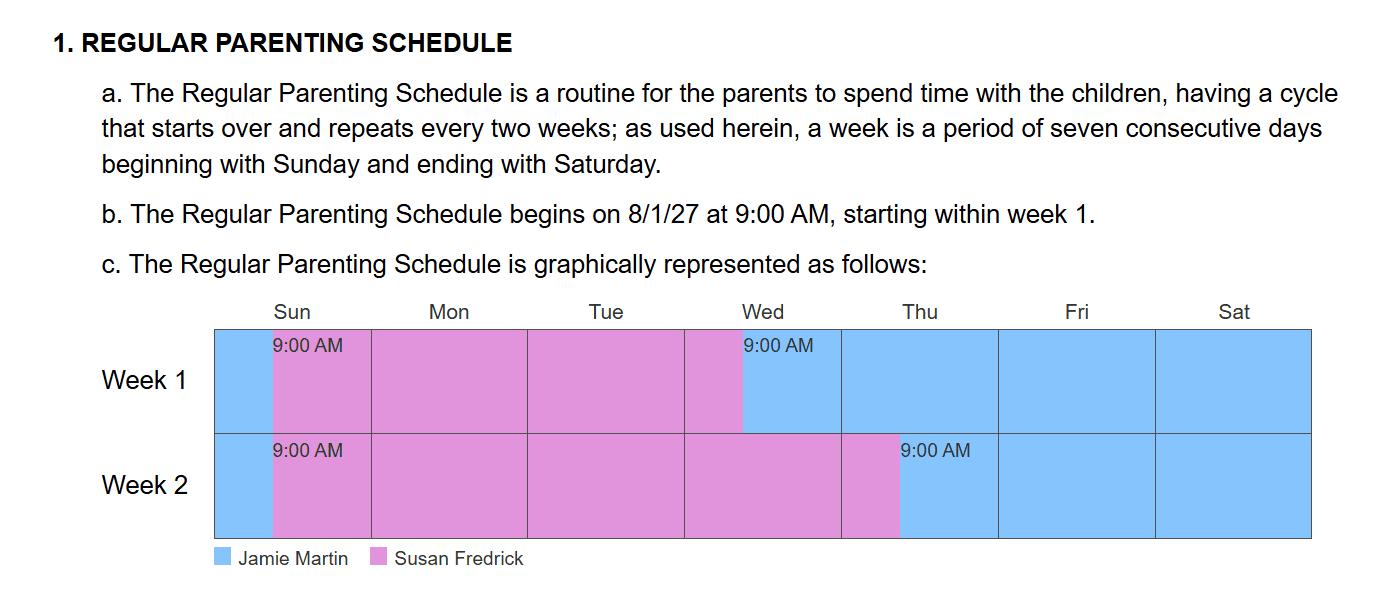
Parental rights and responsibilities
Parental rights and responsibilities refers to how parents make major decisions about the child's education, religion, medical care and more. There are three types:
- Shared: Both parents weigh in on every major decision.
- Allocated: Each parent is in charge of certain decisions. For example, one parent might decide which school the child attends, while the other chooses the child's doctor.
- Sole: One parent makes all major decisions for the child.
Regardless of the arrangement, parents can make daily decisions and emergency medical decisions when the child is with them.
Try this with Custody X Change.
Optional provisions
Add more parenting rules to help you best manage parenting apart.
Communication
Communication is key to a strong co-parenting relationship. Explain how parents can get in touch with one another to discuss parenting. Co-parent communication apps, like Custody X Change, are an easy way to stay on top of and document conversations. You might not allow phone calls if you're prone to arguments.
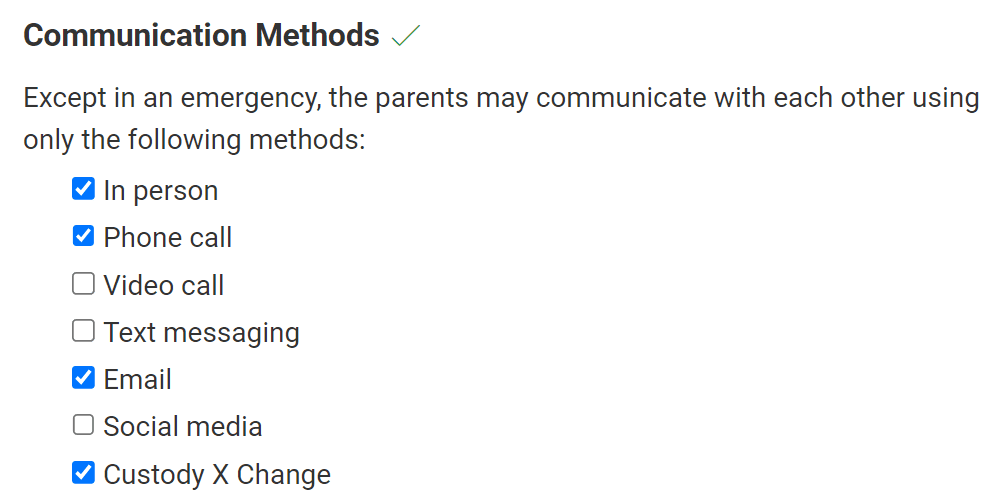
Also, cover how you'll stay in touch with the child while they're with the other parent.
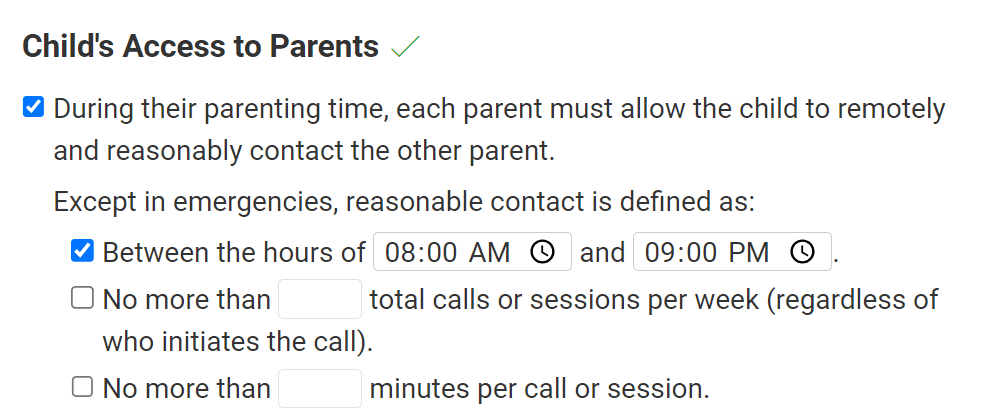
Exchanges
Specify how you'll handle sending the child from one parent's home to the other's. Will exchanges happen at a parent's home or a neutral location, like a supermarket parking lot? Who else is allowed to pick up and drop off the child other than parents?
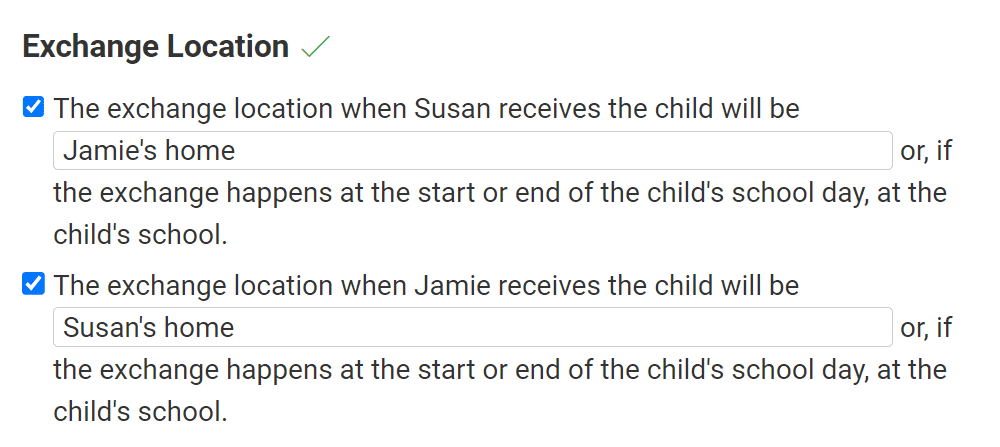
Missed visits
Due to work, illness and other reasons, a parent might miss their scheduled visits with the child. Include whether you'll allow makeup visits.
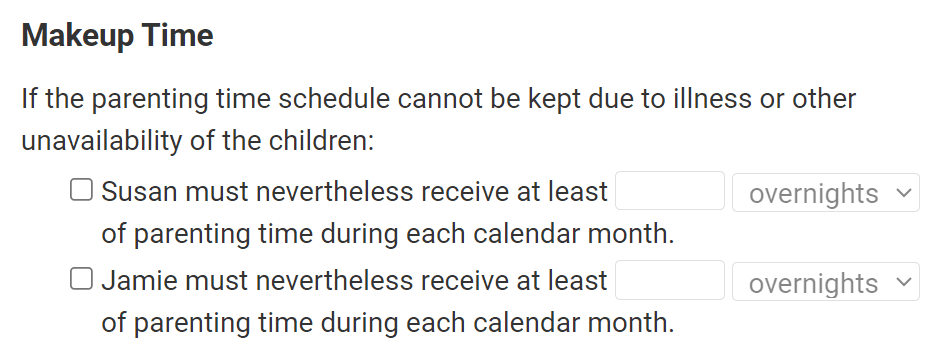
Moving
Under Maine law, parents must give each other 30 days' notice before moving with their child.
Add details to your plan, like restrictions on how far away a parent can move and rules for adjusting the contact schedule.

The easiest way to make a parenting plan
When you're writing a parenting plan, it's critical you use airtight language that leaves no room for interpretation.
If you hire a lawyer, they'll write up the plan and ensure it meets the court's requirements.
If you write your own plan, use technology to take guesswork out of the equation. The parenting plan template in the Custody X Change online app walks you through each step.

The result is a professional document that demonstrates your competence as a parent from the first glance.
The easiest and most reliable way to make a parenting plan is with Custody X Change.
